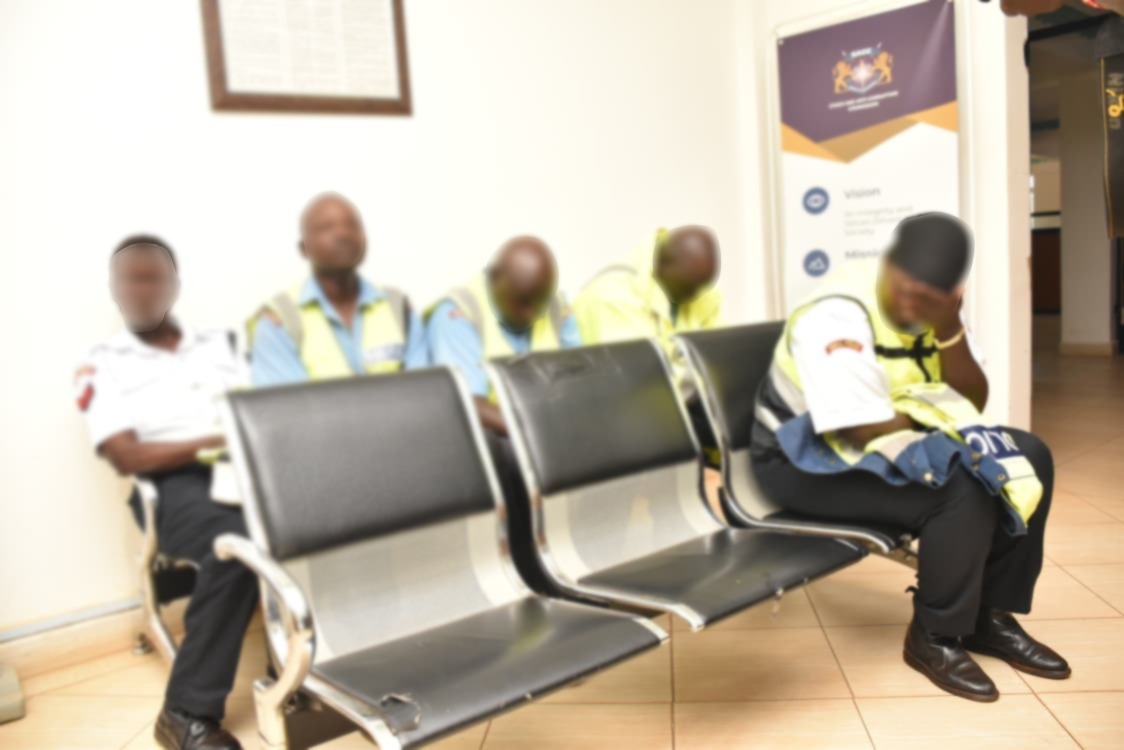 The five traffic police officers who were arrested in Busia County allegedly extorting motorists/HANDOUT
The five traffic police officers who were arrested in Busia County allegedly extorting motorists/HANDOUTThe Ethics and Anti-Corruption Commission (EACC) has arrested five traffic police officers in Busia County who were allegedly extorting motorists.
The officers were arrested during an operation along Busia-Kisumu Road, near Busia Town.
The suspects are currently held at EACC’s Western Regional offices in Bungoma town for processing.
A report released by EACC in March said traffic police
officers across the country collect at least Sh3 billion in bribes every month.
The report highlighted that the rampant bribery is deeply embedded in law enforcement and has far-reaching consequences for public trust and road safety.
The Commission’s CEO, Abdi Ahmed Mohamud, described what is commonly referred to as petty corruption as a major threat to the country’s well-being, warning that the widespread practice is normalising corruption and worsening service delivery.
“Looking at the amount of money we recover on average from arrested traffic police officers after just two hours of surveillance, we estimate that in a 10-hour shift, an officer can collect as much as Sh100,000 from motorists. That translates to about Sh3 million per month per traffic police officer if deployed daily. If we assume there are 1,000 traffic police officers across the country, that adds up to at least Sh3 billion per month. But we know there are more than 1,000 traffic police officers on duty nationwide. That is an enormous sum collected through so-called small bribes from Kenyans, but with a huge impact,” Abdi said.
He pointed out that when an arrested traffic police officer is found with approximately Sh20,000 after just two hours of surveillance, the figure suggests that an officer could accumulate up to Sh100,000 daily.
The anti-corruption chief further revealed that investigations by the Commission have established that bribes taken by officials at service delivery points—such as police stations, immigration offices, and county government offices, have a significant impact on society.
“Kenyans are feeling the effects of corruption at service delivery points because it is money taken directly from their pockets, albeit in small amounts. This is especially true when they encounter it while seeking services at police stations, Huduma centres, or when applying for business licences, passports, and national identity cards, among others. Ignoring these small cases would only help to normalise corruption, which we cannot afford as a country,” he added.
He cautioned that a Sh100 bribe given to a traffic police officer by a matatu crew to overlook worn-out tyres or other defects on a vehicle could result in an accident, causing deaths or injuries far more devastating than the bribe itself.
Abdi further noted that cumulatively, thousands of traffic police officers across the country collect hundreds of millions of shillings daily, amounting to billions monthly, directly from Kenyans’ pockets.



















